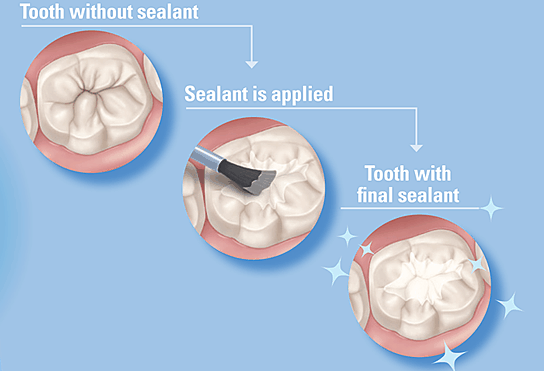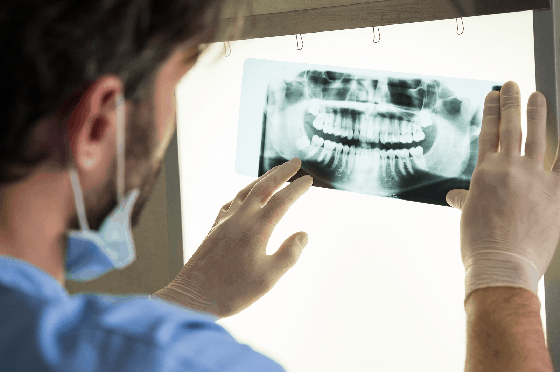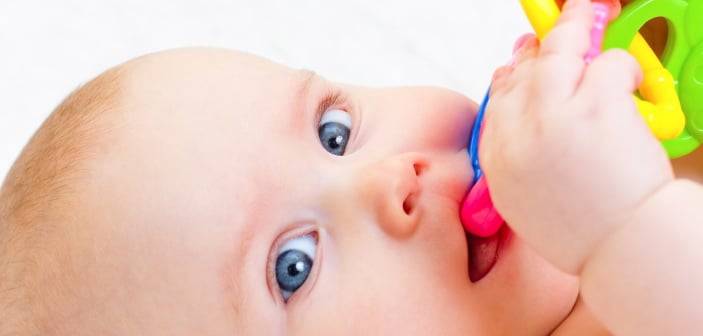How should I clean my baby’s teeth?
A toothbrush will remove plaque from the teeth that can lead to decay. Soft-bristled toothbrush with a small head, preferably one designed for infants is good. It should be used at least once a day.
When should I take my child to the dentist for first consultation?

In order to prevent dental difficulties, you should take your child to a pediatric dentist when first tooth appears, or on his/her first birthday.
Are baby teeth really that important to the child?
Primary, or “baby”, teeth are vital for many reasons. They help children speak clearly and chew naturally, they also aid in forming a path, permanent teeth can follow when they are ready to erupt.
How should I help my child if he has a toothache?
First, clean the irritated area with warm salt water, put cold compress on the face if it is swollen. Finally, see a dentist as soon as possible. It’s not advised to give painkillers without doctor’s prescription.
Are thumbsucking and pacifier habits bad for a child’s teeth?
Thumb and pacifier sucking habits will affect child’s teeth if it continues for a long time. Often children stop these habits on their own, but if they are doing this until the age of three, a mouth appliance may be recommended by your pediatric dentist.
How can I prevent decay caused by feeding?
Avoid feeding through the bottle when they go to bed. The formula in the bottle encourages bacterias to grow, hence increase the risk of cavity. If you are feeding at night, keep them awake while feeding and thoroughly clean their mouth before putting them in the cradle.
How often does my child need to see the pediatric dentist?
A check-up every six months is advised in order to prevent early dental decay. However, your pediatric dentist can inform you when and how often your baby should visit based on their personal oral health.
When should I start using a toothpaste and how much?
It’s ideal to use Fluoridated toothpaste as soon as the teeth begin to appear. After the age of two use a small amount, equivalent to the size of a rice grain. For 3-6-year-old, you can dispense a “pea-size” amount of toothpaste. Young kids do not have the ability to brush their teeth efficiently, hence do assist your child to brush his/her teeth. Children should be taught to spit out and not swallow excess toothpaste after brushing.
How do I make my child’s diet secured for his teeth?
For healthy teeth, a balanced diet is important. Ideally, it should include one serving each of fruits, vegetables, cereals, milk and dairy products, meat or fish and eggs. It’s good to avoid foods which contain a high amount of sugar and starch. You can also ask your dentist to help you with diet to protect your child’s teeth.
How do dental sealants work?

Sealants work by filling in the deep crevasses on the chewing surface of the teeth. It seals out food particles that could get caught in the teeth, causing cavities. The application is fast and easy and can effectively protect teeth for many years.
How can I protect my child’s teeth during sporting events?
Wearing soft plastic mouth guards can protect a child’s teeth, lips, cheeks, and gums from sport-related injuries. A custom-fitted mouth guard will shield your child from injuries to the teeth, face and even provide protection from severe injuries to the head.
What should I do if the child falls and knocks out a permanent tooth?
Find the knocked out tooth. Touch it by the crown rather than the root and try to reinsert it in the socket. If that is not possible, place the tooth in a glass of milk and visit the dentist.
How safe are dental X-rays to my child?

There is a very limited risk in dental X-rays. Pediatric dentists are particularly careful to limit the amount of radiation to which children are exposed. Lead aprons and high-speed film are used to assure safety and minimize the amount of radiation.





